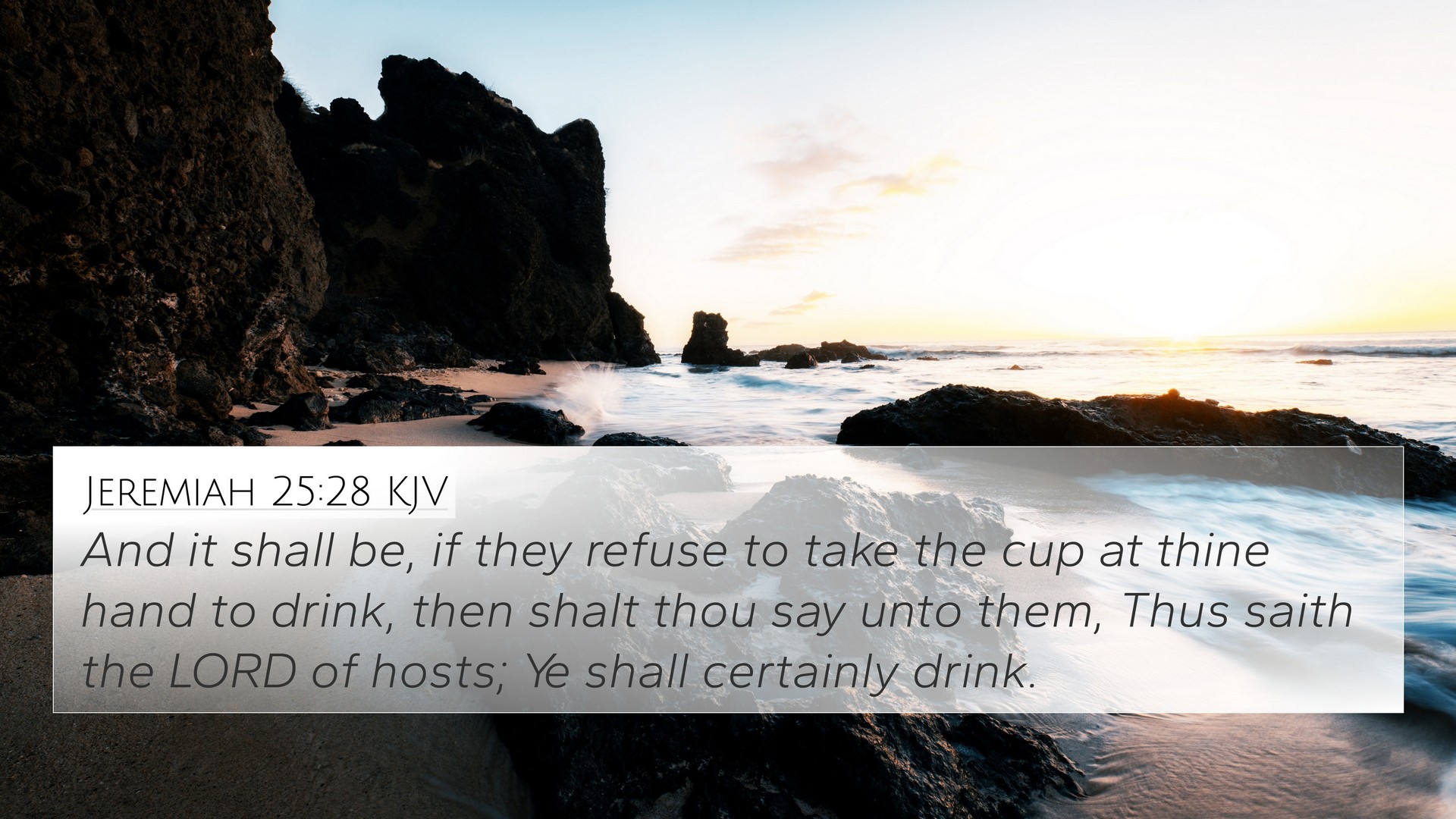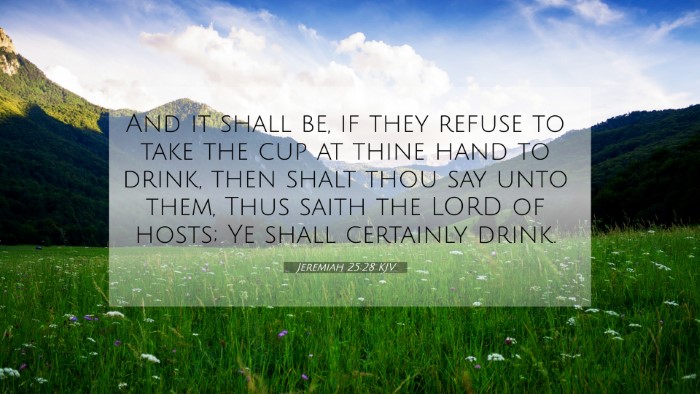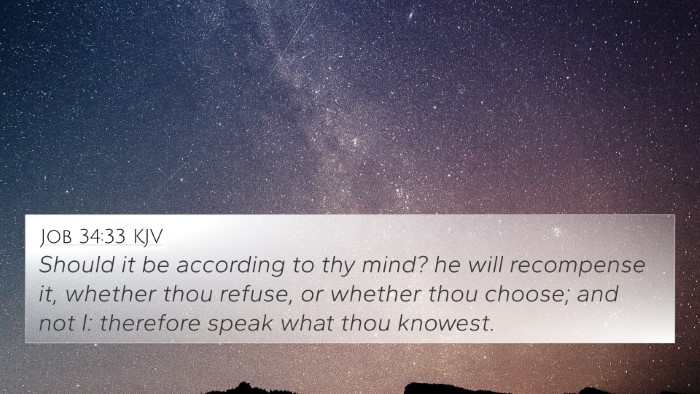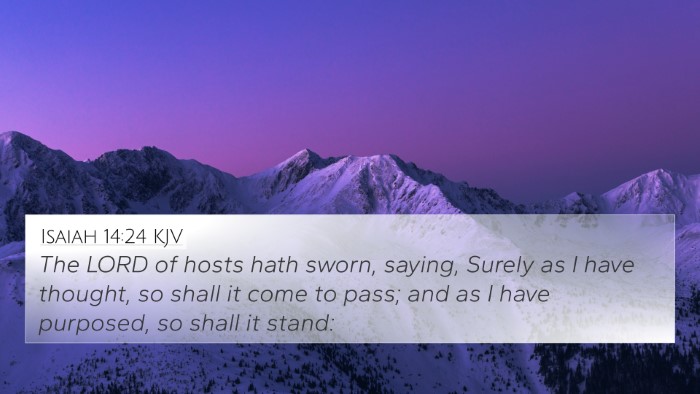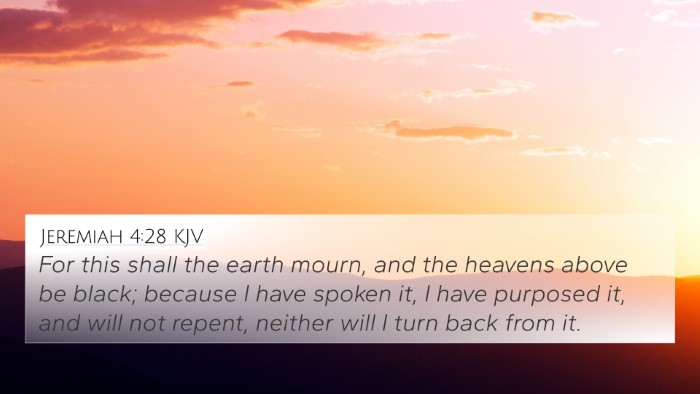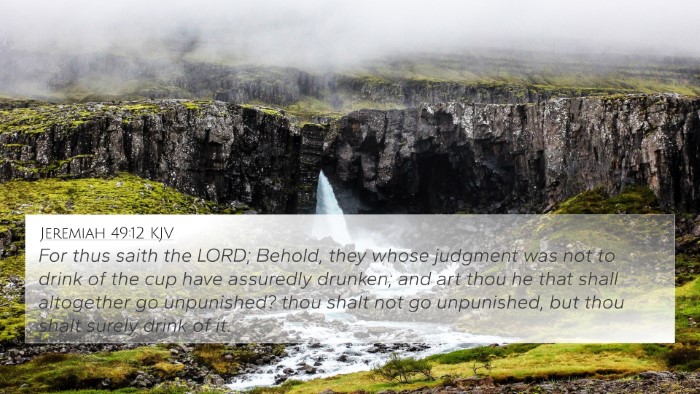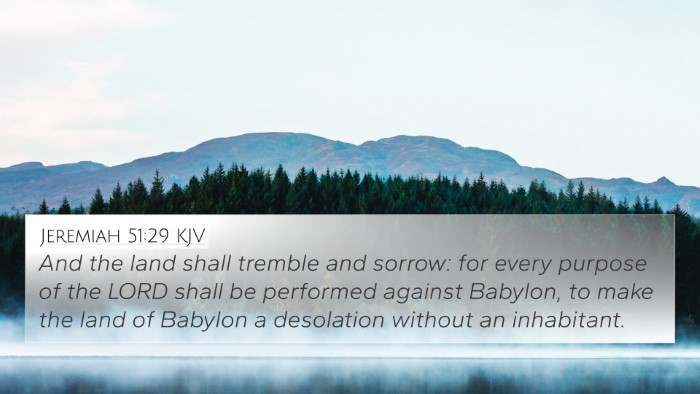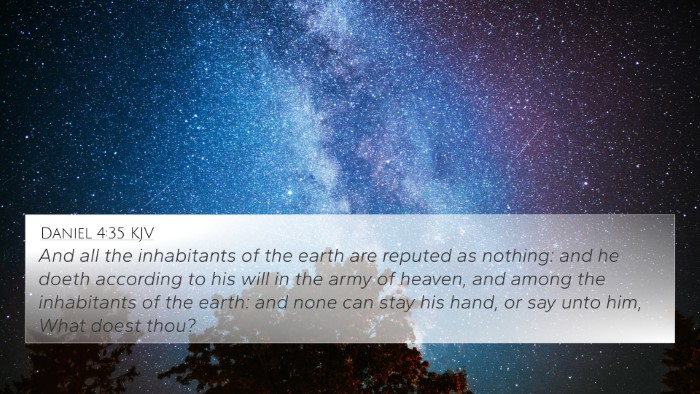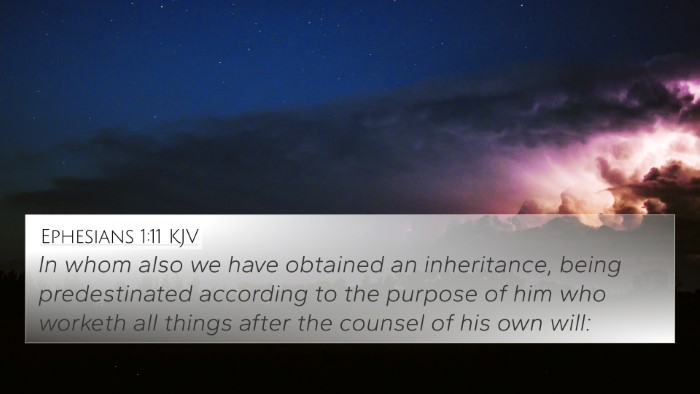Understanding Jeremiah 25:28
Jeremiah 25:28 states: "But if they refuse to take the cup from your hand and drink it, tell them that this is what the Lord Almighty says: ‘You must drink it!”
Overview
This verse is part of a prophetic message delivered by the prophet Jeremiah to the people of Judah, emphasizing God's sovereignty and the inevitability of judgment.
Key Themes and Meanings
- Divine Authority: The assertion that God's word must be heeded illustrates His ultimate authority over nations and peoples.
- Consequences of Disobedience: The metaphor of the cup symbolizes the impending judgment that will be poured out on those who oppose God.
- Challenge of Acceptance: The phrase “if they refuse” underscores human reluctance to accept divine judgment and the importance of repentance.
Commentary Insights
Matthew Henry: Henry emphasizes the futility of resisting God's will. He notes that the cup symbolizes both judgment and God's righteous anger. It is a call to acknowledge the severity of sin, and refusal only intensifies the weight of consequence.
Albert Barnes: Barnes interprets the cup as a metaphor for divine wrath. He highlights that God's commands are not arbitrary; they are just and necessary for the spiritual condition of the people. The emphasis on drinking the cup is a means of necessity; it must be accepted.
Adam Clarke: Clarke discusses the significance of the cup as representing God's determined plan. He elaborates that by insisting the people must drink, God underscores the certainty of His judgment, which stems from a need for divine justice in the face of pervasive sin.
Bible Cross References
To gain a deeper understanding of Jeremiah 25:28, consider the following cross-references that highlight similar themes of judgment and divine authority:
- Psalms 75:8: "For in the hand of the Lord there is a cup, and the wine is red; it is full of mixture; and he poureth out of the same: but the dregs thereof, all the wicked of the earth shall wring them out, and drink them."
- Lamentations 4:21: "Rejoice and be glad, O daughter of Edom, that dwellest in the land of Uz; the cup also shall pass through unto thee: thou shalt be drunken, and shalt make thyself naked."
- Ezekiel 23:33: "Thou shalt be filled with drunkenness and sorrow, with the cup of astonishment and desolation, with the cup of thy sister Samaria."
- Revelation 14:10: "The same shall drink of the wine of the wrath of God, which is poured out without mixture into the cup of his indignation; and he shall be tormented with fire and brimstone in the presence of the holy angels, and in the presence of the Lamb."
- Matthew 26:39: "And he went a little farther, and fell on his face, and prayed, saying, O my Father, if it be possible, let this cup pass from me: nevertheless not as I will, but as thou wilt."
- Mark 14:36: "And he said, Abba, Father, all things are possible unto thee; take away this cup from me: nevertheless not what I will, but what thou wilt."
- Romans 2:6-8: "Who will render to every man according to his deeds: to them who by patient continuance in well doing seek for glory and honor and immortality, eternal life: but unto them that are contentious, and do not obey the truth, but obey unrighteousness, indignation and wrath."
Connections Between Bible Verses
This verse connects to other scripture through its exploration of themes related to consequences for disobedience, the nature of God’s judgment, and the call to repentance. The links can illustrate a broader narrative of God's relationship with humanity, His justice, and the universal need for redemption.
Tools for Bible Cross-Referencing
When seeking to understand scriptures like Jeremiah 25:28, various tools are available:
- Bible Concordance: A reference book that lists words found in the Bible and their immediate context, making it easier to find similar verses.
- Bible Cross-Reference Guide: This helps provide a structured list of related verses, enhancing one's study.
- Cross-Reference Bible Study: A methodical approach that allows readers to see relationships between passages, deepening comprehension.
- Bible Reference Resources: These resources give background insights and thematic analysis that enrich understanding.
- Bible Chain References: This system links related verses, creating a web of interconnected themes for in-depth study.
Conclusion
Jeremiah 25:28 serves as a poignant reminder of the necessity of heeding God’s words and the reality of divine judgment. By studying this verse in conjunction with other related scriptures, one can appreciate the comprehensive narrative of God's justice and mercy throughout the Bible. Through effective cross-referencing and study tools, believers can gain a greater understanding of Biblical messages and how they relate to their lives today.
